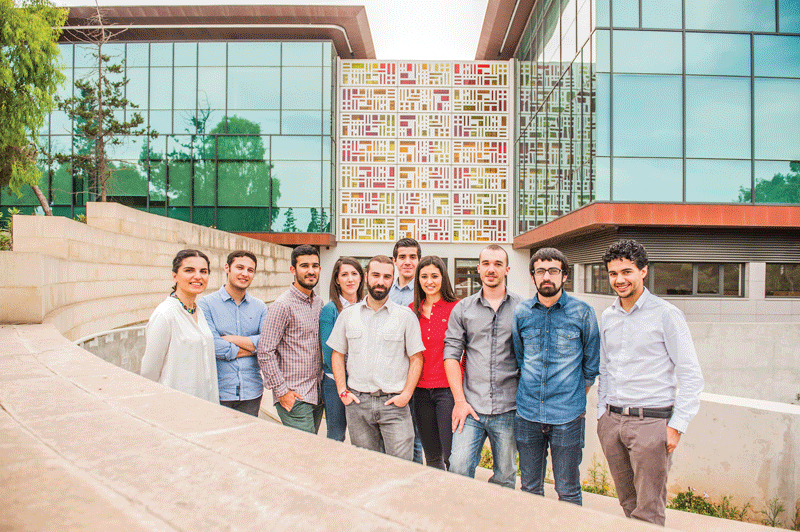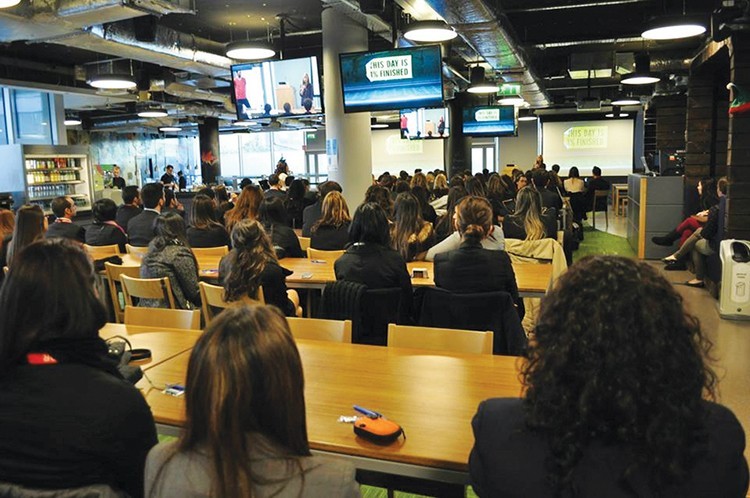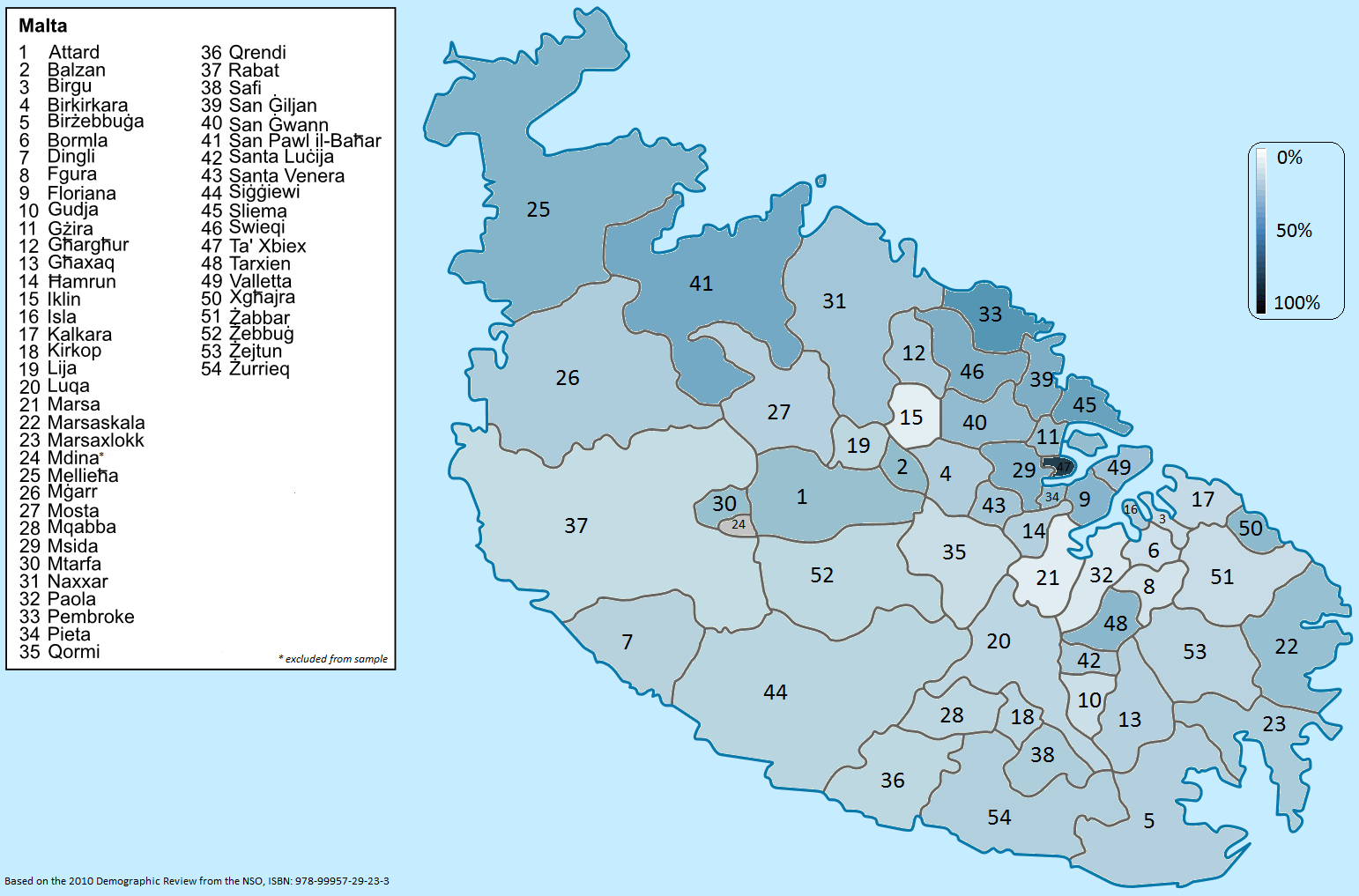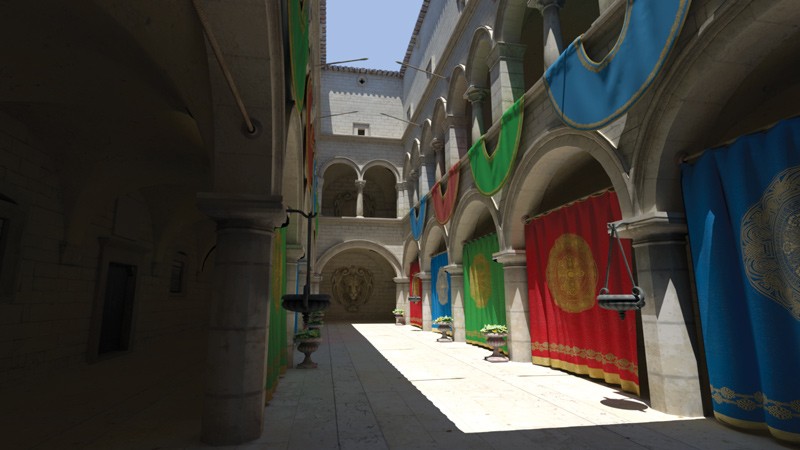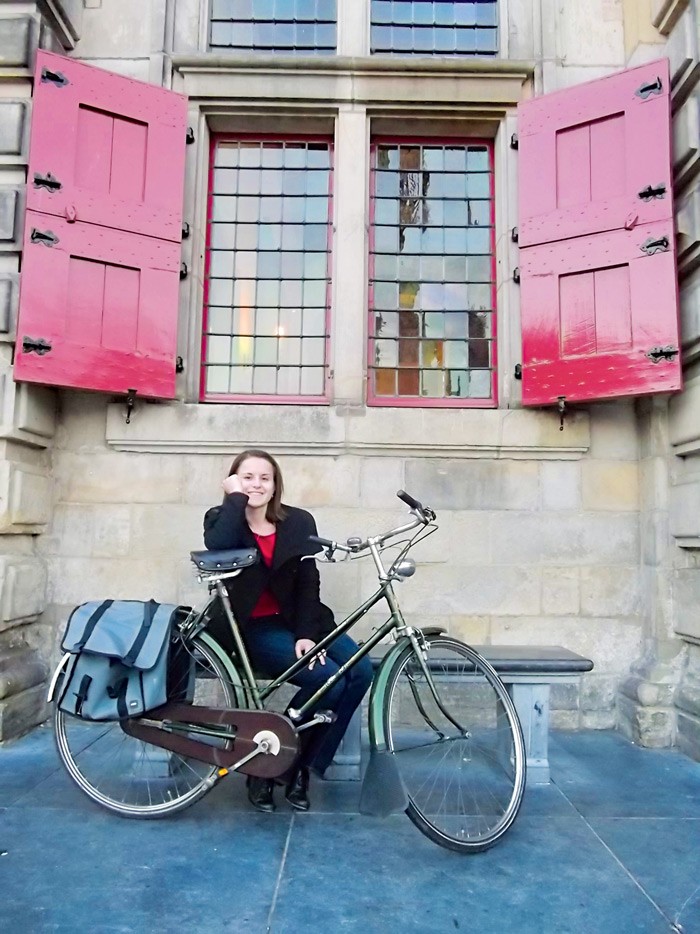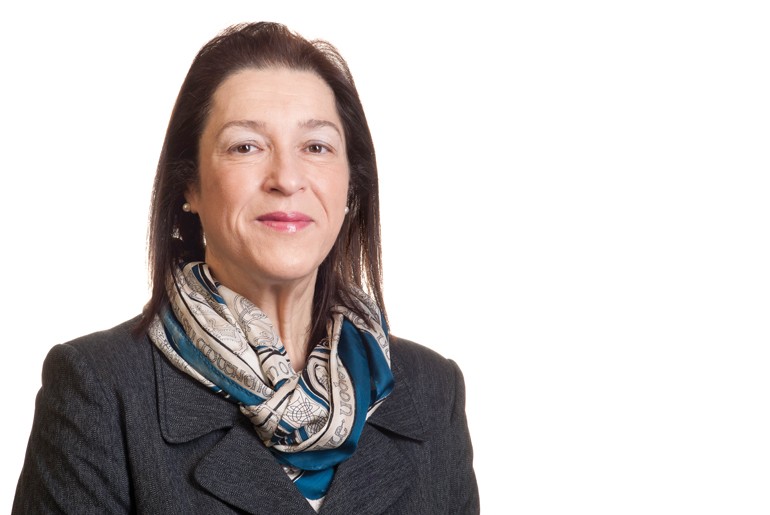Students for Research
Education is a word we are constantly bombarded with. After sitting for hundreds of exams, having read thousands of notes, spent endless nights fighting with coffee machines and sticky notes, you probably know the hardships of our education system. However, education is much more than books and lectures.
Education is a way of life. It changes us and can bring out our potential. Our University is the place we all come to learn, work, and ultimately spend most our time. Be it students, staff members, academics, or researchers, it is of utmost importance for us all to be in line with why we are all here, to nurture education and develop our society’s future.
The University has been growing rapidly in the past decade. Construction is ongoing, labs are being renovated, and the number of postgraduate courses and doctorates has grown exponentially. Naturally, research has spiked up too, and the UoM is also spearheading a few world-class projects.
Why am I putting so much importance on research? The answer is simple. Without research Malta can never make a leap forward to improve our quality of life. The main aim of research is always that of identifying and exploring new knowledge that will ultimately make our world a better place.
Locally, researchers are not just donning white lab coats. Maltese researchers are diving deep into Mediterranean waters to explore native aquatic species, some are crawling face down in garigue environments to investigate local flora and fauna, while others are breaking new grounds to find the Maltese genetic components responsible for cancer and other deadly diseases.
Students perform research for their dissertations (see the student section of Think). This is when a student will first experience hands-on research. A university supported to conduct top research is necessary to give students more real-world research opportunities. Encouraging a research mentality within the early stages of the University experience is essential to foster a lifetime commitment towards our alma mater.
Unfortunately, the biggest obstacle in research is funding. This problem is worldwide. But whilst other countries have already made substantial efforts to fight this problem, locally we have just started to get the ball rolling to instill the much needed awareness and culture around research funding.
Investing in research is essential and we are seeing an initial good response from society. People are slowly starting to realise that through research we are not only creating a hope for future generations, but we are also aiding the education of our children and helping our country’s socio-economic well-being. In the past year we have managed to raise important funds for cancer and kidney research, and other important causes.
The University Research Trust’s latest initiative, in collaboration with the KSU, is a project whereby students can directly donate funds towards research within their faculties. Dubbed as the UoM Caution Money Scheme, this initiative lets final year students from the Faculties of Engineering, ICT and Sciences donate their laboratory caution money towards research projects and equipment in their faculties. Ten students, who decided to set an example for their peers to follow, launched this scheme during an annual KSU event, showing that everyone can contribute towards research at University.
We are now encouraging all final year students from these faculties to follow suit and also contribute towards research. Malcolm Zammit, one of the students who already donated the money appealed to his peers saying, ‘This small deposit we had left in our first year is negligible when compared to the amount that the University has invested in all of us. Today, I feel it my natural duty to give something small back to this place which has given me so much.’
The initiative has also encouraged other student organisations to donate. ELSA has just given the Research Trust some funds for University research. These initiatives are all helping towards fostering more awareness and funding so that together we can continue leaving a tangible impact on our campus and society.
Photography by Sean Mallia
Mario Cachia is the Campaign Officer of the RIDT, which is the University’s Research Trust aimed towards fostering awareness and fundraising for high-calibre local research. More information on how to participate in the UoM Caution Money Scheme will be published shortly. Please visit our website www.ridt.eu to donate online, and our Facebook page www.facebook.com/RIDTMalta for the latest events and initiatives.
Plan to Live
Can planning really sustain us? Should we plan to survive or is project planning simply there to overcome obstacles when we are faced with them? Dr Rebecca Dalli Gonzi writes about a group of project management M.Sc. students who she asked to prepare a project plan. During their project students suddenly faced an unexpected turn of events. They were asked to counteract the problem and face the challenges that they encountered. This is their story
Planning is constant action; it never stops. If you are moving to a new house or country, you probably know what this means. Planning is pervasive, but can it get out of hand? What does planning a gap year mean? Do you plan every single minor detail or do you let loose to enjoy some spontaneity? If, for example, a couple is turning a shell apartment into a home it would involve a lot of tasks, planning leave in advance, and chasing the architect. They just might give up when a book shelf cannot get through the door. If we can plan to live, how would it help us get out of a rut when things really go wrong?
Managing your life is not that different to managing a project. When you manage a project you need a flexible plan that can meet the unplanned changing demands that life hurls at you. We live in a time when the efficiency of a service or project is based upon its ability to meet change or increasing demands. Would a project plan ensure that your plans run smoothly even when your life path starts changing its course?
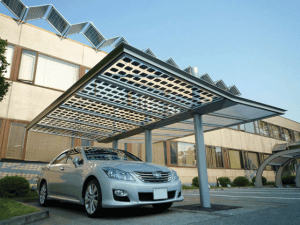
Project managers cannot always foresee every eventuality when planning and managing a project. Once a project is underway many unexpected events can affect project target dates and resources. Planning at its simplest would mean better management and more knowledge, while at its most complex, it could mean more peace of mind. Trying to plan a complex project without a plan is like trying to cross the Pacific Ocean without a navigation system.
Positioning your project within vulnerable situations during the initial planning stages means your team can generate ideas develop creative solutions, and have a solid idea about the resources they have, time schedules they need to stick to, and budgets. This is exactly what helped Rita Sant manage change during an unexpected turn of events as soon as her project was launched.
Plan for Health
Sant designed a healthcare concept for homebound patients called ‘SMART At HOME’. It offered a combination of home health and community based services. She carried out in-depth research to come up with the right strategy, marketing analysis, project milestones, and deployment plan. Things seemed perfect on paper. Yet she ran into a game changer. Shortly after the project was launched, a competing company called HomesforYou was set up. It threatened to put her project on hold. HomesforYou offered similar concepts that which her project sponsors had in mind. However, Rita and her team had engineered some alternate options before the actual launch to keep the company ahead of the competition. Putting the project in a vulnerable position through an in-depth SWOT analysis (analysis of the strengths, weakness, opportunities, and threats of a project) helped show the project sponsors where their focus should be. Her focus was primarily on selecting target markets and helping attract new customers. Sant was able to direct her team towards the right networks. She identified gaps in the south of Malta, and worked directly with doctors and insurance providers to bring in new customers.

Sometimes, we are so taken up by our projects that we fail to see the obvious, to question the challenges whilst assuming we have already envisaged the end result. Project planning helps identify areas of weakness through tools like PESTEL analysis (analysis of political, economic, social, technological, environmental and legal factors that impact business), SWOT analysis, performance testing to verify strategies (plan workability), design of project think tanks, project recovery planning, contingency planning, and risk analysis (amongst other research areas). There is a lot of research behind project management.
Plan for Energy
Areas in the project that could have been overlooked suddenly become crucial. Sometimes being realistic is crucial to success. Another student, Joseph Borda, immediately received a notice that should his project exceed the proposed budgets the project sponsors would incur heavy fines. Borda was clear with his ideas from the start. Developing the power engineering workforce for the future is what he had in mind. His design of a solar panel array on the Malta International Airport car park would mean the generation of just enough energy to supply the airport. Proper time scheduling ensured that the project would be delivered within the specified time-frames. This could only work together with a proper team organisational structure and pre-designed hierarchical task network, which is the approach to automated planning where dependency among actions is given in the form of a network. A well-researched proposal helped Borda envisage proper scheduling to ensure the project was delivered within the specified time objectives, together with the team organisation structure and task hierarchies required to complete the task in time. Could a project schedule really have helped Borda stick to his time-frames? A project’s life or death hinges on its delivery date. Incurring fines meant that the project was narrowed down to a critical selection of what areas of the project had to be done in time.
“A solar panel array on the Malta International Airport car park would mean the generation of just enough energy to supply the airport”
The schedule alone would not have been a guarantee to a successful outcome. The initial stages of project research helped him and his team realise that the costings report for mounting and installation of the array was heavily over-priced. The project schedule helped mitigate the over-budget fines through the planning of phased installations and so areas that were going to be over-budget were shifted into a secondary phase. Typical project management requires attention to time, cost and quality. Once restrictions appear in one area, other areas begin to shift to accommodate new demands.
Having project management principles in place means there is a greater chance of fulfilling your objectives within the overall strategy and facilitating diagnosis of different situations as they occur. Just like captains need chart plotters or radars for distance and bearing to be able to manoeuvre ships in the worst conditions, so project managers use Gantt charts (a type of bar chart used to illustrate a project’s schedule) to help manoeuvre projects through time. Detailed planning helps translate business objectives into deliverables, provide a list of resource requirements, and a realistic assessment of project time-scales. Control measures can also be used to ensure there are no delays in target dates or to help identify team members who are not being productive.
Plan for Success
Measures of project progress can also be used to indicate when things are not moving as planned. Marc Spiteri decided to incorporate this approach into his project plan to meet a specific target: managing the Malta national rugby union team to qualify for the Rugby World Cup. Spiteri chose sports engineering as his field of study.
Spiteri’s primary objectives were to promote sports locally and to increase Malta’s appeal as a destination for sports tourism. The management plan was designed to operate on a three-point plan: first, having funding mechanisms in place for potential stakeholders and sponsors to bring in further investments; second, training and game planning aimed to work with the national team chosen to aid the organisational requirements for training camps and competitive games; third, a marketing strategy to tap into the local resources.
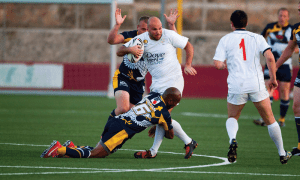
However, Spiteri was faced with a difficult challenge. Sponsorship for his project plan was threatened to be reduced if specific targets were not reached. Spiteri had knowledge and insight at the planning stage to moderate the negative effects of this cut. During planning he was able to set key performance indicators in areas of finance, training, competition and markets as part of the project design. The performance indicators allowed him to set targets to reach his ambitious goal. Rather than add a measure of control as an after-thought, he was able to integrate this as a whole concept. This meant that significant changes or shortcomings would be assessed against a measurement system, allowing a prompt response to take place with the significant action.
Plan for Death
Project control helps to ‘diagnose’ issues, plan for tackling weaker areas and adjust quickly to changes. It is normal for the team to assume that everything will work out well in the end but unpredictable behaviours, unfortunately, do happen. A lack of ownership can cause as many problems as unscheduled timing of events or project delays. A project plan gives the team the ability to envisage areas in which people conduct their activities and carry out their responsibilities. The more prepared the team is (in terms of knowledge and know-how of project plan), the quicker the recovery period. Planning is also useful as a tool when it is used to focus and highlight project needs to those involved. This is of particular importance when a project manager has to suggest different solutions to his or her client. Johann Farrugia was particularly good at providing a number of solutions for his concept of a digital cemetery when he had a major on-site problem with humidity.
“Information in cemeteries is handwritten meaning that some of the oldest records are today hardly legible. This is why cemeteries need an IT system to meet today’s needs”
Cemeteries are sacred, emotional spaces but also witnesses of human history. Information in cemeteries is handwritten meaning that some of the oldest records are today hardly legible. This is why cemeteries need an IT system to meet today’s needs. Farrugia identified the needs of all the different groups of people who make use of or work at a cemetery and figured out a system that allowed the public to request information easily. Through the website, staff and undertakers could access all the information they needed about gravesite location and burial details.
Farrugia faced problems with the testing system. Extreme humidity was interfering with the IT infrastructure limiting system usage. However, he integrated alternatives as part of his project planning phase thus being able to suggest solutions to his stakeholders and project investors. He was able to locate a secondary location system for supporting the project, thus eliminating completely the location of IT structures on-site. He also factored costings for any added insulation works required to counteract the problem and sought alternative zones that suffered from less humidity within the cemetery.
In this case, since the unexpected problem arose at an early stage, the project manager could be flexible in his planning, allow for change, and bring in alternate ideas to deal with these issues. Having considered the options beforehand meant that he could reduce the impact of a sudden major change.
In some cases, external events can trigger unexpected time delays. At times it can appear impossible to finish a project punctually, especially when there are delays in materials or suppliers. Sometimes a schedule should be consistent with your experience from previous projects. Your main focus should be on getting your critical requirements completed while avoiding distractions. The project management plan is critically dependent on the people who run it, design it, create it, and implement it. Moreover, increases in dependences increase time-frames.
Plan for Sustainability
Time-frames can quickly overrun when introducing sustainable measures into a residential development. Another student, Joslyn Magro, was keen to integrate into her project grey water reservoirs used to hold second class water for domestic use including lavatory use and landscaping photovoltaic panels, double glazing, and landscaping works. Sustainability has been an evolving theme to encourage environmental responsibility and promote intelligent decision- making with respect to energy use. Bad weather delayed the required materials that were being imported and this set the project back by a month.
By using a Gantt chart, Magro saw the negative effects of this delay. It would impact other installations and works. To reduce the burden, she scheduled architectural detailing and structural elements to run in parallel. This would reduce the dependency on strict delivery dates.
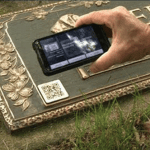
In her project plan she had also considered sourcing from different suppliers so she was able to negotiate costs affected by the delays. Once the materials were delivered on site, she could also introduce secondary teams of labourers to make up for the one-month back log. Costings saved during the delay, were used on a double-managed team unit. In her case, this may have proved to be the winning strategy as managing the on-site team as best as possible would help to counteract any further setbacks.
Taking advantage of constraints is the best way in project planning when possible. Projects revolve around expectations so it is better to envisage opportunity rather than to try control an event. Turning a shell apartment into a home might sound like a simple project in comparison to the ones discussed earlier but the problems would, theoretically, be very similar. Delays, supplier changes and exceeded budgets would surely impact your strategy along the way. Having strict milestones might be useful. It is not always necessary to consider worst-case scenarios but do consider carefully how much risk is actually acceptable. Most importantly, do not try to solve the problem, solve the cause.
This article covers some work of the first cohort of students enrolled in the M.Sc. in Project Management launched by the Department of Construction and Property Management, Faculty for the Built Environment, University of Malta. The diversity of projects reflects the range of situations in which project management skills are being applied.
Innovation in Business
 Being in the second year of my banking, finance and management studies, innovation in these sectors is a key part of my curriculum. In banking one can easily see developments with the introduction of banking by telephone, internet and mobile. Similarly with management, recent growth has allowed the sector to grow and develop expertise in management of projects, accounting and supply chains.
Being in the second year of my banking, finance and management studies, innovation in these sectors is a key part of my curriculum. In banking one can easily see developments with the introduction of banking by telephone, internet and mobile. Similarly with management, recent growth has allowed the sector to grow and develop expertise in management of projects, accounting and supply chains.
Innovation has exponential potential to foster new solutions, initiatives and jobs. Younger graduates need to create new opportunities. For Malta to improve its competitiveness and attract investment we must turn challenges into opportunities. During Ireland’s EU Presidency, in the first half of 2013, the negotiations led by Dublin saw Malta secure €1.128 billion for the 2014-2020 Multi-Annual Financial Framework. The possibilities for Malta are endless. On top of this framework lies the Horizon 2020 Programme, where countries can compete for over €80 billion set aside for innovation. These funds should be used strategically in Malta to improve existing sectors and to find a way to create new markets and jobs. This growth would build Malta’s competitiveness.
“For Malta to improve its competitiveness and attract investment we must turn challenges into opportunities”
SMEs (small and medium sized enterprises) are being greatly encouraged by the EU since they are seen as a route out of the recent economic crisis. The Horizon 2020 programme gives priority to SMEs.
Malta can win more of these funds by looking at what Horizon 2020 aims to achieve, that is leadership in a world of competitive science and to realise innovations leading to societal change. These could be in the areas of biotechnology, clinical research and green technologies. We need systems that change the way we live and think.
In the global economy, it can be hard to be innovative and entrepreneurial as we have grown accustomed to depending on other countries to do our work. Instead of waiting for new technologies and developments to emerge so that we can replicate them, we should encourage the young generation to open new doors that could lead them to success. Thus, inspiring people to think outside the box and to be creative starts from an early age. This train of thought must be cultivated at the heart of the education system where students start to think about jobs and the future.
Last December, I had the opportunity to see this when I visited Facebook’s Headquarters in Dublin as part of the ASCS study trip. There is considerable scope for further research into virtual platforms linking social media with innovation in business.
Albert Einstein once said ‘Most people see what is, and never see what can be,’ which is exactly why we need to shift the focus on what can be done, rather than what has already been done.
Wi-Fi Security Map for Malta
Wi-fi is ubiquitous. The technology can be an easy back door for hackers to access a computer through online tools that anyone can learn to use. The global cybercrime bill now tops €700bn and will keep rising. To find out the security of Maltese Wi-Fi networks Kurt Mahoney (supervised by Prof. Ing. Victor Buttigieg) mapped out around 70% of the island’s built-up areas.
Mahoney first carried out in-house testing on Wi-Fi security protocols. He then formulated security categories depending on ease and speed of access to a private network. For example, the WEP (Wired Equivalent Privacy) security standard could be cracked in less than one minute (irrelevant of password complexity). On the other hand, the WPA2 (Wi-Fi Protected Access II) security standard with AES (Advanced Encryption Standard) grade encryption and a twelve-character random alphanumeric password was virtually impossible to crack using brute force techniques.
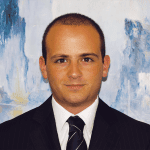
Setting up a car with several Wi-Fi antennas, he then travelled a preplanned route through all the Maltese villages, apart from Mdina. Private security protocols were noted from automatic Wi-Fi transmissions, however he avoided conducting cracking or penetration testing. Mahoney then created a security map for the Maltese Islands from 64,317 observed private networks. Forty percent of private Wi-Fi networks in Malta were very vulnerable to hacking that increased to 90% if using more sophisticated attacks.
Wi-Fi security was poor all over the Island, with Western and South Eastern districts having marginally lower security. Malta needs a nationwide awareness campaign to increase the security levels of Wi-Fi networks. Top-notch security can be setup in a few minutes. All modern routers support military grade AES encryption standards, and together with a proper password policy one would render a Wi-Fi network almost invulnerable to direct attack.
This research was presented at the fourth Workshop in Information and Communication Technology (WICT). It was performed as part of a B.Sc. (Hons) in ICT at the Faculty of ICT and part sponsored by the Malta Communications Authority. It was shortlisted for the Chamber of Engineers’ Best ICT Student’s Project Award.
Simulating the real world
Dr Kurt Debattista shares his passion for computer graphicsContinue reading
Valletta’s Digital Layer
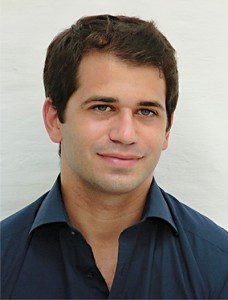
Dérive Valletta is an initiative by digital art student Matthew Mamo (supervised by Dr Vince Briffa) aimed at increasing the visibility of our capital city’s museums and cultural institutions using augmented reality.
Augmented reality has a host of possibilities to allow people to interact with art and through this art the city itself. Inspired by the work of Israeli artist Yaacov Agam, the digital visuals featured in Dérive Valletta require the user to move around the objects being scanned in order to view the content.
Possessing its own cohesive brand and identity, this initiative is ultimately intended to contribute towards the creation of a digital cultural infrastructure within Valletta prior to 2018. Being a digital layer laid over the real world there will be no negative impact on this UNESCO World Heritage Site’s unique built environment.
The brand’s aesthetics were kept minimalistic to create an identity that can be incorporated into Valletta in an unobtrusive manner while endowing the initiative with a contemporary image. Minimalism is reflected in the restrained colour scheme and use of clean sans-serif typefaces.
The research was undertaken as part fulfilment of an MFA in Digital Arts and partially funded by the Strategic Educational Pathways Scholarship (Malta). This Scholarship is part-financed by the European Union — European Social Fund (ESF) under Operational Programme II — Cohesion Policy 2007–2013, “Empowering People for More Jobs and a Better Quality Of Life”.
Netherlands: a land of bikes, clogs, and research

My journey started in 2006, when I started my bachelor in Mechanical Engineering (University of Malta). My passion lay in Materials Engineering, so I focused my undergraduate thesis in this area. I studied ways of improving the corrosion resistance properties of Nitinol, an alloy of Nickel and Titanium. This material is used in many biomedical applications. I built an environment similar to the human body to test the material’s corrosion properties.
After graduating in 2010, I took an M.Sc. in biomedical engineering and specialised in biomaterials (Delft University of Technology, Netherlands). Over this two-year programme as part of my technical internship, I worked at the Orthopaedics Research Department of the Erasmus Medical Centre (Rotterdam). I worked with two other Ph.D. students researching titanium scaffolds for bone defects.
Following my internship, I moved back to Delft and performed another research project again on the alloy Nitinol. We were using it to improve heart stents, tubes used to prop open blood vessels when they are clogged. I created a layer of a ceramic, porous Titanium dioxide, on the surface of Nitinol and then filled the pores with a novel drug that prevents the blockage of blood vessels. Heart stents sometimes fail by getting clogged, the slow release of the drug, which we monitored, would help prevent blockages hence heart attacks at a later date.
But my time in Delft was not yet over. I remained at TU Delft to take up a two-year research position. This time I am researching how natural polymers can be used to make artificial cartilage tissue for patients who need it replaced — a challenging project since I am learning how to set up a new lab for a new subject.
Cuschieri was awarded a STEPS scholarship for her Masters studies, which is part-financed by the EU’s European Social Fund under Operational Programme II — Cohesion Policy 2007–2013.
Finding bats by listening
Sonar for navigation was implemented after the Titanic disaster in 1912. Bats have used this remarkable technique for the past 50 million years. These nocturnal animals emit ultrasonic signals and analyse the returning echoes to avoid obstacles or predators and find their prey. For humans, studying bats means long hours in the night spent tracking their movements or capturing them with nets. To avoid some of the bat research difficulties, conservation researchers identify and study bats by eavesdropping on the ultrasonic sounds they emit.
Clare Marie Mifsud (supervised by Dr Adriana Vella) has now studied bats in Malta, linking specific sound patterns to specific bat species and their behaviour. Bats can be identified using acoustic detection because they all use different frequency patterns to suit their needs. The analyses can be used for further research and conservation monitoring of local bats.
Her study encompasses 38 research survey sites spread all over the Maltese Islands. Two bat detectors (a heterodyne and a real-time expansion detector) are used simultaneously to instantly identify and analyse the species. Nine different bat species are already confirmed to inhabit the Maltese Islands till now.
Three species (Rhinolophus hipposideros, Myotis punicus, and Plecotus austriacus) were recorded a few times (2% of survey time), since they use low intensity echolocation signals. Other bat species (Hypsugo savii, Pipistrellus pipistrellus, Pipistrellus kuhlii, and Pipistrellus pygmaeus) were detected more often (92% of survey time). All Maltese bats feed on insects and are found to spend most of their time in valleys, followed by other habitats, including cliffs, woodlands, agricultural land, shrublands and urban settlements. Valley biodiversity is important for local bat survival and needs to be preserved.
Through the use of bat acoustic detection systems and signal analyses, this detailed research provides the first important set of data of its kind for all bat species detected in the Maltese Islands. This complements other bat research, which has been ongoing since 1998 by the Conservation Biology Research Group (University of Malta). They have been involved in different bat studies, including the ecology and genetics of local bat populations. These research efforts aim at reversing the trend of decreasing bat numbers. Mifsud’s research paves the way towards developing another effective long-term monitoring tool for the conservation of bats in Malta.
This research is part of an M.Sc. in Biology at the Faculty of Science. BICREF (The Biological Conservation Research Foundation) provided voluntary assistance during fieldwork. The research was partially funded by the Strategic Educational Pathways Scholarship (Malta). This Scholarship is part-financed by the European Union – European Social Fund (ESF) under Operational Programme II – Cohesion Policy 2007-2013, ‘Empowering People for More Jobs and a Better Quality Of Life’.
Going for it… and all it takes!
Antionette Caruana shares her successful career from banks to food manufacturing companies. Female, over 50 years old, raising two young adults (who think their mum is technologically challenged and old),a patient and supportive husband (partner for over 24 years), encouraging parents, and friends and family who have been there for me whenever needed. These qualities are the critical aspects of my life which is full, overflowing, sometimes exhausting but truly rewarding. My first job was nearly 35 years ago, and the years have flown by.
Many opportunities were opened by starting my career at a local bank after my first degree at the University of Malta, B.A. (Hons) in Business Management. At the same time, I married my husband who gave me more enthusiasm. My studies opened up a great interest in understanding the role of people in organisations, management, strategy, and performance.
Then I changed my job. Soon after I got married, I took the plunge and joined Playmobil entering a career that lasted more than 13 years. During this time, I learnt so much about business, running an organisation, and people management. The job was challenging and needed long hours with some tears and a dose of determination to succeed, but I could make things happen.
During my job at Playmobil, I had two children, completed my Masters’ degree and also got involved in many opportunities outside Playmobil including the Federation of Industry, the Foundation for Human Resources Development, the Richmond Foundation and worked with different departments of the public sector. I also took on different projects and lectured at University to keep in touch with students (the employees of the future) and academics (the launchpad of innovation and debate).
Being an idealist who is obsessed about achieving results, I sought my next challenge: to make a difference by taking a leading role. I applied to head Heritage Malta as CEO and was chosen. The team was extremely committed to preserving and managing Malta’s unbelievable heritage. We did some great things together like keeping museums open 7 days a week and put up the shelters over the Neolithic temples of Ħaġar Qim and Mnajdra. Following that, I worked with Lufthansa Technik Malta when this organisation was quickly growing on the island. Currently, I work with the Farsons Group as Company Secretary and Group HR manager. Being part of the senior management team of one of the long established and most successful local group of companies is another very rewarding experience and continues to provide me with enthusiasm, ambition, and pride.
Top tips to succeed
by Antoinette Caruana
-
My family remains my priority, though they may not believe this. My career has helped shape me. The following are the best values that have made a difference to who I am.
-
Have a dream and go for it… Make it happen. Believe that no one owes anyone a living. If you falter, try again.
-
Work with others.
-
Be as good as you can in what you do.
-
Always have a passion for learning in everything you do. Keep your eyes and ears open. Be aware of what is happening and contribute.
-
Keep true to your values.
-
Tell people who have made a difference to your life that they have, and treasure them.
-
Say sorry at work, at home, and invest time to build trust and commitment.
-
Be a good example by working long and hard. Sometimes you will be tired and grumpy but pick yourself up and move forward.
-
Invest in relationships which really matter.
Nobody is an island and networking is vital. You need it to work with other organisations, to continue learning, to contribute, and to be part of a country’s culture. Networking gave me confidence and helped open up opportunities. I have served as director at the Employment and Training Corporation (ETC) and until recently the Central Bank of Malta. Before that I served on MEUSAC and also on MPVQAC. The list is very long and I was in touch with various sectors of society from youths to industry. These experiences have touched my life and enriched me.
Now I’d like to talk about being a woman on the job. First off, do not let this make a difference to how you behave since your skills, competence, and professionalism matter. Going for a career demands a strong partnership at home, but I believe that if a woman is good at what she has chosen to do, she would have the sheer determination to succeed by finding those critical opportunities. In Malta, I already see a number of successful women in many spheres. And I hope we will see even more.


